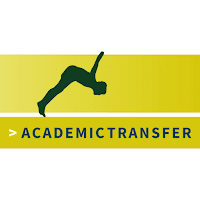PhD Talk for AcademicTransfer: My experience in writing two books as editor
 This post is part of the series PhD Talk for AcademicTransfer: posts written for the Dutch academic career network AcademicTransfer, your go-to resource for all research positions in the Netherlands.
This post is part of the series PhD Talk for AcademicTransfer: posts written for the Dutch academic career network AcademicTransfer, your go-to resource for all research positions in the Netherlands.
These posts are sponsored by AcademicTransfer, and tailored to those of you interested in pursuing a research position in the Netherlands.
If these posts raise your interest in working as a researcher in the Netherlands, even better – and feel free to fire away any questions you might have on this topic!
I acted as the editor of a two-volume set of books titled “Load Testing of Bridges“, which came out about a year ago. These books are part of a series titled Structures and Infrastructures.
If you are at the point in your career where you may have gained a fair amount of experience on a certain topic, and built up a network of fellow researchers, you may be considering to put together a book as editor. In today’s post, I’ll share my experience on this topic, and I’ll also give some general advice.
In my experience, editing a book is a time-consuming endeavor. As the editor, you will see each chapter going through many stages, you will read each chapter many times, and will need to carry out a large number of tasks – you are responsible for putting together the book at all stages. These stages are:
- Initial proposal
- Sending the proposal for review
- Taking action after review of the proposal
- Organize writing of chapters
- Review chapters
- Check revised versions of chapters
- Assist authors with finalizing submission package
- Review proofs
At all stages, you’ll also be responsible for all communication with the publisher on one side and the authors on the other side.
In my case, I was invited to put together a book proposal in October 2016, and the book was published in June 20019. The authors sent me their first drafts between November 2017 and April 2018.
If you want to bring such a large project to success, the following aspects are important:
1. Be aware of the latest research on the topic
Before you put together the proposal and contact authors, do a literature search. Even if you’ve been working on this topic for the last few years, you may have missed a new topic that should be included in your book. It’s perfectly fine reaching out to authors you don’t know personally, if you let them know why you think their contribution to the edited book would be valuable.
2. Cover the topic from all sides
Similarly to the previous point: make sure your proposal doesn’t contain blind spots and that all subthemes of the main topic are covered, even though you may not be that familiar with these particular subthemes.
3. Be ready to step up if something goes wrong
Make sure you have a plan B in case something goes wrong. Some authors may not be able to deliver their chapter at all. Think of possible alternate authors, or see if you can take the lead in writing the chapter and involving one or more of the originally intended authors. People change jobs, get different teaching loads, go on maternity or paternity leave – all of these changes may be unforeseen when you set out to contact authors and write a proposal, but such things happen in life.
4. Be very organized
Since you are responsible for putting the book together, you will need to be very organized. Keep track of the status of all chapters. Make sure all submission packages are in order. Check the resolution of all the figures. Keep all relevant correspondence and all draft versions of chapters on file.
5. Follow up as much as possible
Don’t just expect to receive the draft chapters on their due date. Keep in touch with the authors letting them know about the different stages of the process, and reminding them in due time of the deadlines that are coming up. Then, during the production stage, send emails every now and then to keep the authors informed about how the book production is moving forward.
In short: putting an edited volume together is a lot of work, but it’s a very interesting experience at the same time.

[…] to think about the type of book you want to write: textbook, monograph on a research topic, or an edited volume. All of these are valid choices, and all of these will require a different approach and planning […]
[…] A-Z of the PhD Trajectory), co-authored Planning and Passing Your PhD Defence with Olga Degtyareva, edited and authored two volumes on bridge load testing, and an edited volume on advanced concrete materials in bridges. These experiences have taught me […]